Environmental crime
With its devastating impact on the environment, environmental crime is manifested in different ways, including though organized crime activity.
This type of crime is serious also because of its transnational character and because of its expansion and great potential for causing harm. As such, it represents a significant challenge.
Environmental crime is one of the five most prevalent and one of the fastest growing (5-7% per year) types of crime on the global level. It leaves unforeseeable and lasting consequences on human health and leads to the degradation of all parts of the environment (soil, water, air, flora and fauna) with numerous safety implications. It exists at all levels (local, national, global) and in different forms, including organized crime, corruption and money laundering. It is characterized by its “invisibility” (many environmental crimes are never detected) and a myriad of different factors that favor its rapid development.
In the period between 2019 and 2022, in the territory of Serbia, 3,107 criminal offenses were detected and criminal reports were filed against 2,694 persons for environmental crime. In 2022, the number of detected crimes increased by 43% against 2021, by 34% against 2020 and by 10% against 2019.
The issue of environmental crime is fraught by numerous peculiarities of investigative, operational and evidential character, while the need for appropriate education and establishment of adequate functional organization is also prominent. Therefore, a special organizational unit has been established at the Ministry of Interior of the RS within the Criminal Police Directorate, specializing in combating all forms of environmental crime.

Environmental crime in Serbia has the following manifestations:
• Failure to undertake environmental protection measures by business entities and uncontrolled emission of pollutants into water, air and soil
Different types of pollution and environmental damage are on the rise, and the responsibility for this is borne by individuals and legal entities who improperly dispose of waste and wastewater from production plants, farms and slaughterhouses, thereby polluting rivers, other flowing and standing waters and even sources of drinking water. Many business entities release hazardous substances into water, air and soil during the production process, without undertaking statutory protective measures. This is certainly one of the most difficult types of environmental crime, which brings into danger the life and health of people or causes destruction of flora and fauna, and frequently also the entire ecosystems.
Environmental crime is particularly dangerous because of its regional and international character. One example of this is the constant pollution (as a result of improper waste disposal) of the Lim River, which flows through Serbia, Montenegro and Bosnia and Herzegovina. All other surface waters that flow through our country are also threatened by pollution.
• Illegal hazardous waste management – the collection, transportation, storage, treatment, disposal and smuggling of hazardous waste without the permit of a competent authority.
This most frequently occurs in the form of legal and illegal landfills, where hazardous waste is collected, stored, treated and disposed of without a proper permit. This particularly applies to electrical and electronic waste, end-of-life vehicle parts, waste engine oil and car batteries. The transit of waste through Serbia from the western and central EU member states to Southeast European countries is not negligible either, in cases where it is accompanied by fake documents on the origin, type and quantity.
- Crime against biodiversity (illegal logging, illegal hunting and fishing, smuggling of protected plant and animal species and molesting and killing animals).
Protected animal species from the CITES list are smuggled through one of the most frequently used corridors in this part of Europe, which passes through Serbia. Protected species of parrots are mostly smuggled, and the majority of these birds have been seized at the borders with Hungary, Croatia and Bulgaria. Cases were also detected of smuggling of protected species of reptiles, such as pythons (python regius, boa constrictor, etc.), lizards and forest turtles.
Illegal hunting in Serbia has international character. Namely, Serbian citizens are not the only ones who participate in the hunting of protected bird species in our country, these are also foreigners who come to Serbia for that very reason. Caught birds are smuggled to Hungary, Croatia, Slovenia and Italy. Hunters use hunting weapons, as well as traps and prohibited electronic bird callers.
A special problem is still forest theft, which causes great material and environmental damage. Forest theft is especially frequent along the administrative line with AP K&M, where it is carried out by organized groups from that area.
Environmental crimes are mostly financially motivated. Certain criminal acts are directly related to white-collar crime, corruption and money laundering.
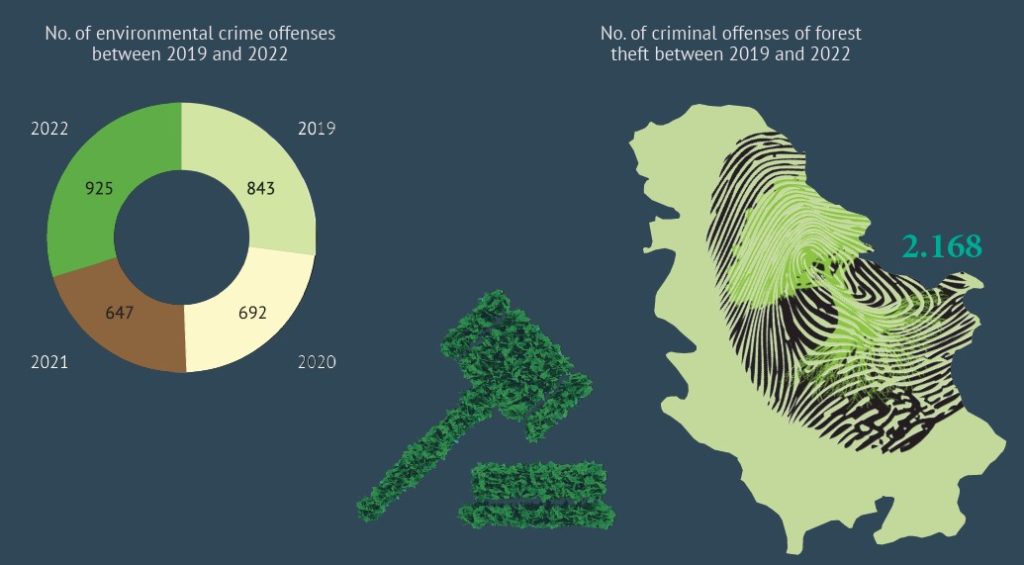
In September 2022, during the construction of a commercial building, a mixture of raw concrete and water was dumped into the Tripušnica river near Trgovište in southern Serbia. This changed the physical and chemical properties of water in a fishpond, causing the death of 13,000 fish (Californian trout) and the material damage of RSD 1.3 million.
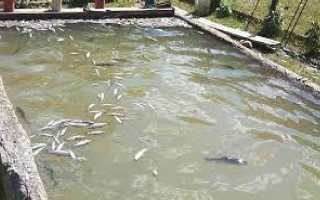
The captain of a cargo ship sailing under the flag of the Republic of Bulgaria committed the crime of environmental pollution by causing a spill of 35,000 liters of oil into the Danube.
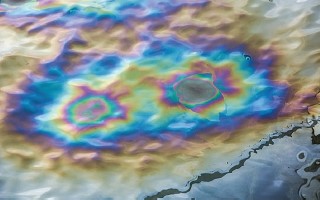
In September 2022, a prohibited device for catching and killing animals was found in the territory of Bujanovac, after it was used for catching 31 goldfinches which are under strict protection. Twenty-one of them were released back into nature, and ten were handed over for treatment.

In June 2022, it was discovered that an African lion cub was illicitly traded. The cub was smuggled into Serbia for RSD 590,000.
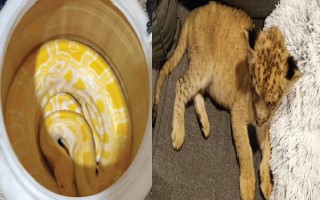
In mid-2022, attempted illicit trade in protected species of turtles was prevented in the municipality of Bujanovac. A total of 186 animals belonging to the testudo hermanni species and 95 animals belonging to the testudo graeca species were seized.
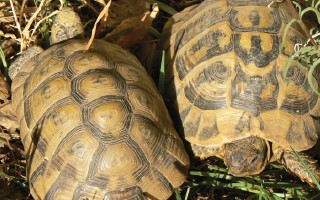
Expected Future developments
► In its November 2020 evaluation report, the European Commission assessed that environmental crime would continue to increase in the coming years, to which cross-border organized criminal activities will particularly contribute. The report said that cross-border cooperation should be strengthened through the establishment of joint investigative teams and better data exchange using the IMPEL ENPE, EnviCrime Net and EUFJE networks, which allow specialization according to environmental crime areas. In addition to this, the criminal law protection of the environment will be improved by a more precise definition of environmental crime offenses through the new EU Environmental Crime Directive, which is being drafted. It will envision stricter criminal sanctions for environmental crimes, in view of the fact that the existing ones have not achieved their purpose, and are still unharmonized among EU member states.
► In Serbia, like in the European Union, environmental crime (and especially its most serious forms) will be a prominent issue in the coming period.


